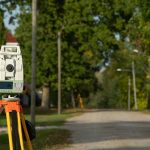In the UK, Houses in Multiple Occupation (HMOs) are structures designed to house several individuals, not from one household, but sharing certain amenities like a kitchen or bathroom. These properties often provide an affordable housing solution for many people, including students, young professionals and low-income families. However, HMOs must meet certain strict legal conditions, including obtaining a proper licence from the local council. If these conditions are not met, safety and living standards can be compromised. This article details the process for reporting an unlicensed HMO.
Identifying an Unlicensed HMO
Before you can report an unlicensed HMO, you first need to identify one. In the UK, a property is classified as an HMO if it houses three or more people forming more than one household, with shared toilet, bathroom or kitchen facilities. A large HMO is one with at least five people forming more than one household, sharing facilities.
A voir aussi : What are the implications for UK businesses under the new carbon tax legislation in 2023?
These properties are required to have an HMO licence. If you suspect that a property is being used as an HMO without the appropriate licence, there are several signs to look for. Overcrowding, poor maintenance, and excessive noise are common indicators.
Additionally, the fire safety standards in unlicensed HMOs are often inadequate, which can be a major hazard. For instance, the absence of fire extinguishers, smoke detectors, fire doors, and fire escape routes are tell-tale signs that the property might be unlicensed.
A découvrir également : How do UK residents apply for compensation for disruptions caused by public utility work?
Reporting an Unlicensed HMO to the Council
Once you have identified a property you suspect to be an unlicensed HMO, the next step is to bring it to the attention of the local council. They are the enforcement authority for HMO licensing and are obliged to investigate your report.
Start by gathering as much information as possible about the property in question. This could include the address, the number of occupants, and any evidence of the conditions that led you to believe it is an unlicensed HMO. This information will help the council’s Housing Standards Team conduct a thorough investigation.
You can report your concerns directly to your local council. Most councils have a dedicated email, telephone number, or online form for reporting suspected unlicensed HMOs. Remember to consult the council’s privacy policy before providing your personal information, as you have the right to report your concerns anonymously.
The Council’s Investigation and Enforcement Action
Once the council receives your report, they will commence an investigation. This usually involves an initial assessment of the information provided, followed by a site visit to the property. The purpose of the visit is to confirm whether the property is an HMO and to assess whether it meets the licensing requirements. The council may also interview the landlord and the tenants as part of the investigation.
Should the council discover that the property is an unlicensed HMO, they have several enforcement options available to them. One such option is to serve a notice requiring the landlord to apply for a licence. If the landlord fails to comply with this notice, they can be fined. In more serious cases, the council can apply for a banning order, prohibiting the landlord from renting out properties.
Role of the Landlord in Licensing an HMO
It’s important to understand that it is the landlord’s responsibility to apply for an HMO licence. If a property is being used as an HMO without the proper licence, the landlord is breaking the law and could face severe penalties.
When applying for an HMO licence, the landlord must prove that the house is suitable for multiple occupation and complies with fire safety regulations. They must also agree to keep the property in good condition, ensure that the property is not overcrowded, and provide safety certificates to the council upon request.
The Importance of Reporting Unlicensed HMOs
Reporting unlicensed HMOs is crucial for maintaining high standards of housing and safeguarding the welfare of tenants. Unlicensed HMOs can pose severe risks to the health and safety of the inhabitants, due to potential overcrowding, poor maintenance and inadequate fire safety measures. By reporting these properties, you are playing a pivotal role in ensuring that everyone has access to safe, decent and affordable housing.
In conclusion, it is clear that reporting unlicensed HMOs is a vital process in maintaining the integrity of the UK’s housing market. It’s a process that requires vigilance, action, and cooperation with local councils. But, rest assured, your efforts will contribute significantly to a safer and better housing system.
Implications of non-compliance with HMO licensing regulations
Non-compliance with HMO licensing regulations and operating an unlicensed HMO property is a serious offence in the UK. A landlord found guilty of renting out an unlicensed HMO can face grave penalties, including unlimited fines and a criminal record. They may also be required to repay up to 12 months of rent to the tenants or to the local council if they have been paying for housing benefit.
Moreover, the landlord might be added to the local council’s ‘rogue landlord’ database and could be issued with a banning order, preventing them from renting out any property in the future. Furthermore, the landlord will not be able to use the ‘section 21’ notice to evict tenants, a procedure that requires the landlord to be a fit proper person and the property to be licensed under the HMO licensing scheme.
Non-compliance also exposes tenants to various risks such as living in overcrowded properties with poor maintenance and inadequate fire safety measures, among others. This can also lead to instances of anti-social behaviour due to high tension among residents, further deteriorating the living conditions in unlicensed HMOs.
Temporary Exemption from HMO Licensing
In some cases, a landlord can apply for a temporary exemption from obtaining an HMO licence. This is typically used when a landlord is in the process of taking steps to stop their property from being a house in multiple occupation (HMO) or when they are actively working to reduce the number of occupants.
The council will consider the circumstances and may grant a temporary exemption notice that lasts for a maximum of three months. If, at the end of the three months, more time is needed, the landlord can apply for a second temporary exemption notice. However, no property can have more than two temporary exemptions in a row.
The exemption is not a right, and it is at the council’s discretion to grant it based on an assessment of the individual situation. It is crucial to note that while a temporary exemption is in force, the property is not required to comply with the HMO licensing scheme.
Conclusion: The Crucial Role of the Public in Reporting Unlicensed HMOs
Regulating Houses in Multiple Occupation is a critical aspect of maintaining the UK’s housing standards and protecting the welfare of tenants. By observing and reporting suspected unlicensed HMOs, members of the public play a crucial role in supporting the efforts of local councils in enforcing HMO licensing regulations.
It is also essential for landlords to understand their responsibilities under the HMO licensing scheme to ensure the safety and well-being of their tenants. They must conduct regular fire risk assessments and adhere to the licence conditions to maintain their status as a fit and proper person to hold an HMO licence.
As we conclude, we reiterate the gravity of operating an unlicensed HMO and the significant risks it poses to tenants and the broader community. The collective effort of landlords, tenants, and the general public in respecting and enforcing HMO licensing regulations will significantly contribute to a safer, more secure housing environment for all.
















